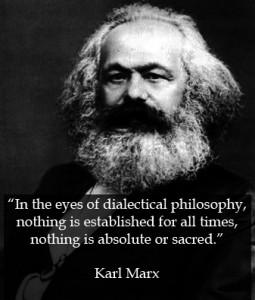China’s ruling Central Committee does not often issue written “notices” or directives. When it does, people pay attention. Because such notices emanate from on Party high, they effectively have the force of law and are perused accordingly.
Last year the Committee issued a 16 page directive to Chinese universities on the contentious issue of religion. The Washington Post (which has posted the translated document) reports the notice through a standard liberal lens that pays obligatory homage to religious repression and freedom. Those most offended, of course, are American Christian activists who believe they are doing God’s work in China. It’s the usual stuff with only a hint that there are much deeper issues here involving competing ideological systems and power.
Those who actually read the notice will get a fascinating glimpse into the inner workings of Chinese authority. The first thing I noticed is that Chinese laws are more fun to read than American laws. There is an actual story be found beneath the bureaucratic density of the Chinese directive. Such stories are conspicuously lacking in American legislation: all we ever get is the lame legalese result of lobbying. This aside, laws that discuss Marx, history, theory, and critique are inherently more interesting than those that do not. It would be like Congress drafting a bill discussing Montesquieu’s Spirit of the Law before delivering the special-imperial interest goods.
In this excerpt from page four, the Central Committee shows a keen understanding of the way in which genealogies can destabilize and debunk sociocultural formations such as religion:
Teaching by classroom instruction is the main channel to educate and guide students. Strengthen education in dialectical materialism and historical materialism in classes on ideological and political theories. In a pointed manner, teach on the origins and changes of religion….
It would be interesting to know if the Chinese still adhere to the standard (and stale) Marxist account of religion or whether they have updated the curriculum with cognitive or evolutionary scholarship. For those not familiar with the Marxist critique, Boston University’s theology department provides a nice synopsis.


